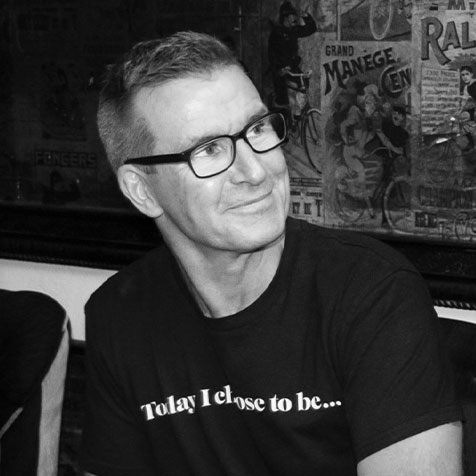Loading component...
At a glance
- Workplace politics is often associated with negative connotations of manipulation, conspiring and sabotage, but this need not be the case.
- The pandemic has brought about a shift in the dynamics of engagement and conversations in the workplace, leading to opportunities for a rethink of office politics.
- High integrity office politics can drive deeper connections and a stronger sense of belonging to a workplace, while improving team performance and boosting the bottom line.
By Engel Schmidl
Political competence is one skill many of us wish to improve, but no one talks about it. That’s because workplace politics is often associated with manipulation, conspiring and sabotage.
This need not be the case, however. At its best, office politics can go far beyond helping advance one’s career – it can also improve team performance and boost a company’s bottom line.
Even amidst the sea change in workplace relations and arrangements brought about by COVID-19, the common denominator remains the same – people.
“We’re still humans; we were humans before COVID, and we’re humans after,” says workplace culture consultant Mark LeBusque. “I would caution people to start to think it’s got to be different. We’re still dealing with human beings.”

However, he says one significant change has been the realisation that we all have our flaws, foibles and quirks. The emotional fragility brought about by living through a pandemic and working from home opened up a new dimension of engagement for many people.
Teleconference calls have been as much about checking in on each other as they are about strictly work-related matters. Honesty and compassion have come to the fore.
“When COVID hit, we started to invest more time in social chit-chat. Managers became more aware of whether workers had kids or pets. They got more insight into the personal lives of their employees,” LeBusque says.
Of course, most savvy managers had already been tending to the human aspects of workplace relationships pre-COVID, but even they were looking at building on that base to forge solid relationships and resilient team cultures.
LeBusque agrees that office politics does not need to have a negative connotation. “Politics includes things like networking and stopping and having conversations with people, whether it’s virtual or in person,” he says.
In the new hybrid workplace environment, those who can master “high integrity politics” will be better positioned to influence their organisations’ outcomes and enhance their status.
“High integrity politics is about building deeper connections to create a stronger sense of belonging,” LeBusque says. “At a basic level, it’s about getting to know people and having a laugh.”
“There are higher expectations now,” he says. “What I’m suggesting to my clients is that we’ve got to combine the technical work, which is important, with the human work – building the connections, taking time to engage and get to know each other.”
CPA Library
Hybrid harmony

With more people working remotely, or at least coming into the office less often, fragmentation is a risk as opportunities for face-to-face team building lessen. There is also the risk of cliques and factions forming, pitting office-based employees against remote workers.
How can organisations and managers bridge these potentially fractious gaps in workplace culture?

Dr Jesse Olsen, senior lecturer in management at the University of Melbourne, says that, before the pandemic, remote workers were often excluded from social activities and professional opportunities.
While we may see this continue in some workplaces, he hopes the pandemic experience of working from home will make people, especially managers, more thoughtful about building inclusive workplace cultures.
“Some of these people – who may have been sceptics before – will realise that working remotely can actually work, and they may even personally adopt remote work for the longer term, at least on a part-time basis.
“And even for many of those who have decided to return to the office and resume business-as-usual, I think they’ll have a new appreciation for remote work, and I’m hoping it has created a new respect for their remote colleagues.”
"Political behaviour - whether constructive or destructive - has to be much more deliberate now... in a virtual office, it's impossible to just have a casual chat at the water cooler or even just swing by someone's desk without an appointment, or run into someone 'by chance'."
Olsen says formal HR policies and practices that support remote work will be crucial to building healthy and inclusive workplace cultures and avoiding divisions between office-based and remote workers.
“We would want to make sure that the organisation leaders are also empowered to work this way if they want to. Organisations could offer a mix of face-to-face and virtual social activities.
Managers should systematically consider both remote workers and on-site workers for professional development opportunities, promotions, etc.
“With this whole experience under our belts, we should feel more confident and comfortable with leveraging advancements in videoconferencing technology to maximise our experience – our human interactions – with remote colleagues.”
For the moment at least, the ongoing shift to a hybrid workplace should serve as an equaliser in terms of office politics, Olsen says.
“Political behaviour – whether constructive or destructive – has to be much more deliberate now. You have to actually schedule a meeting, send an e-mail or make a phone call. In a virtual office, it’s impossible to just have a casual chat at the water cooler or even just swing by someone’s desk without an appointment, or run into someone ‘by chance’. The ‘boys’ clubs’ can’t talk shop in the men’s room, either!
“I hope we see a more inclusive workplace. With that said, I think we could very well also see the next generation of politicking emerge.
“People will figure out how to use virtual breakout rooms, private chats in meetings, and so on. These things will be political tools that people can use for good or evil.
“Still, I think it may be a different group that comes out on top – a group that sees benefits not necessarily from their gender, ethnicity, elite school networks, etc., but rather from their tech-savviness.”
Political progress

Personal brand and image coach Melissa Lewis says a crucial component to advancing your career is making sure the right people know you have done an excellent job. “Office politics have always been there, but it’s on multiple platforms now,” says Lewis.
“It’s less apparent to many, but for those trying to work up the corporate ladder, or jump from middle management to senior management, if you don’t have that physical presence, you could end up being the workhorse that never gets seen and never gets appreciated. That’s one of the dangers of remote work – you can become hidden.”
She agrees with Olsen that the “old boys’ networks”, while not finished, may not hold the same kind of influence they did before COVID-19 in many workplaces. She says many organisations are focusing more on outcomes and results rather than on whether people appear to be working hard or not.
"Office politics have always been there, but it's on multiple platforms now. It's less apparent to many, but... if you don't have that physical presence, you could end up being the workhorse that never gets seen and never gets appreciated."
“That whole ‘first-in, last-to-leave’ mentality is no longer as relevant. Working mums especially have been so good at getting the job done in a time-efficient way, and they’ve maybe not received the recognition they deserved,” she says.
“Now, with more people, both men and women, working from home, there’s a broader recognition that you can be productive without being in the office till all hours of the night.

“I also think women are pretty savvy with networking online and building alliances that way, within their organisations and externally. That new dynamic will shift office politics.”
Workplace psychologist and entrepreneur Eve Ash says managers who want to progress their careers will have to be particularly well equipped to handle diversity. This goes beyond characteristics such as gender and ethnicity, and encompasses various work styles and preferences.
“The workplace is becoming increasingly personalised. It’s not a one-size-fits-all scenario anymore,” she says.
“Many professional firms want their people back in the office – they’re not happy about people working from home. So, what you might get is people working for companies that fit with what they choose, and cultures grow from that.”
"The "new normal" in office politics presents exciting opportunities for those willing to nurture deeper connections and embrace new means of communicating, collaborating and creating lasting value."
Some people may choose to stay out of the office and as far away from office politics as possible. “If you’re in a technical role, you might not need to go into the office or even worry about taking part in team-building, or worrying about workplace culture. That might suit you better,” she says.
Managers must balance technical competence and empathetic leadership. Those wishing to influence outcomes and move up the corporate ladder will also need to display considerable political savvy to keep teams unified.
“Somebody who wants to progress will be happy to go in and straddle the groups,” she says. “The good managers need to be compassionate, but also have strong critical thinking and decision-making skills.”
Love it or loathe it, politics is integral to the fabric of almost every workplace. As with all forms of politics, the office variety can be a force for good as well as evil.
One thing is sure - the “new normal” in office politics presents exciting opportunities for those willing to nurture deeper connections and embrace new means of communicating, collaborating and creating lasting value.

